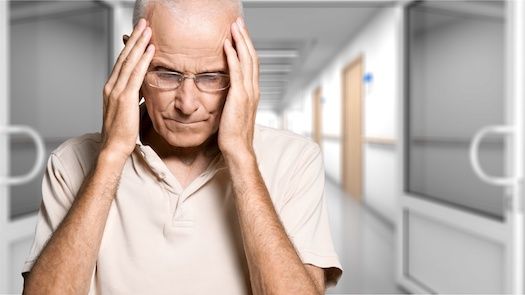Rheumatoid Arthritis Presents Unique Psychological Burdens for Male Patients
RA most often impacts females. For men, it can threaten emasculation.

A recent study out of England illustrates the different physical and emotional challenges many men living with rheumatoid arthritis (RA) experience. Reports indicate the disease is two or three times more prevalent in woman than in men, and the authors of the study point to a “dearth of literature exploring the impact of RA in men and their self-management strategies,” as backdrop to the importance of the work.
Led by Caroline A. Flurey, PhD, of the University of West England in Bristol, the study consists of a literature review and takeaways from a series of focus groups featuring men with the condition. Participants, 22 in total, ranged from age 44 to 75, with a mean age just under 64 and mean disease duration of about nine years. There were six focus groups designed to consist of four to six patients, though missed attendance left one of them with only two.
Coursing through the report is a generational undercurrent, with historically traditional gender roles seeming to heavily impact the thought process of the subjects. An overwhelming theme was masculinity, in the sense of how the often-debilitating joint pain impacted the patients’ working abilities and sense of self.
Established notions of man as breadwinner, problem-solver, and worker caused consternation for the respondents when their pain prevented them from performing tasks. “It is horrible,” said one man, “You’ve got to say to your wife ‘I can’t undo this bottle,’ and she just goes like that and it’s undone.” Others reported a certain shame in asking for assistance, preferring to pay a stranger to complete manual tasks for them rather than admit incapability to their friends and family. “It puts you in a position where you have to ask for help and it’s not a very sort of macho thing,” remarked another.
An extension of that limitation was a withdrawal from social life, with many reporting that they had abandoned more involved hobbies like golfing and others saying they were less likely to go to pubs because it “just didn’t feel right going into pubs and having soft drinks.” For others, adjustments were more destructive. Many reported just pushing their bodies regardless of how they felt, knowing they’d pay for it the next day. Some ignored advice to limit alcohol consumption while on RA medications, while others simply skipped on the medicine to drink.
The men did value medical knowledge of the disease, with the report detailing a propensity for independent research on disease management. “Discourse in the focus groups often centered medication, with all men knowing their medication regimen in detail,” the authors wrote. Of the group, the majority (16) were on disease-modifying antirheumatics drugs (DMARDs), while many took biologic agents or steroids either with DMARDs or as a primary treatment. Regular monitoring of disease status and treatment efficacy by their physicians was considered a positive.
Support was far more likely to come from physicians, female partners, and family members than it was from male peers: “They’re not understanding at all, no, not unless they’ve got something wrong with them,” said one. Still, others had the sense that even many health care professionals lacked sympathy for their RA pain: “They know that men don’t go [to the doctor] unless they’ve really got to, and even then they’ll still fob you off.”
While many of the slang terms won’t translate globally—the report is dotted with “fob,” “schtum,” “bloke”, and even a “guvnor”—the ongoing work of the researchers is to find out to what extent these experiences are shared outside of the focus groups, and if they indicate that men with RA are underserved by existing management models. The overall effect of the patients’ self-perception and their response from others was a sort of grin-and-bear-it approach.
The report makes some recommendations based on its findings, namely in the development of support packages. While traditional thinking on gender created reticence among the respondents (discussion was seen as “something women do”), there seemed to be leeway in approaching the subject to extract useful information that could improve treatment. “These male patients reported being willing to talk to their rheumatology team if directly asked about their emotional well-being, which may be because they value emotional support, but feel uncomfortable acknowledging this,” the authors wrote, emphasizing the need to ask patients direct questions pertaining to the psychological and emotional impact of the disease, rather than open-ended questions that can be dodged. After saying that his rheumatologist had never discussed support options with him, one patient acknowledged that “on the other hand I didn’t tell them I was depressed either.”
The study, entitled ”“You Obviously Just Have to Put on a Brave Face”: A Qualitative Study of the Experiences and Coping Styles of Men With Rheumatoid Arthritis,” appears in the March issue of the American College of Rheumatology’s journal Arthritis Care and Research. The team behind it is currently conducting a survey study “which will enable an informed judgement of whether there is a clinical need to provide services tailored toward the potentially different needs of men.”
Related Coverage:
Potential Rheumatoid Arthritis Blockbuster Gets First Approval
Rheumatology Community Calls for Collaboration to Fight Arthritis Comorbidities